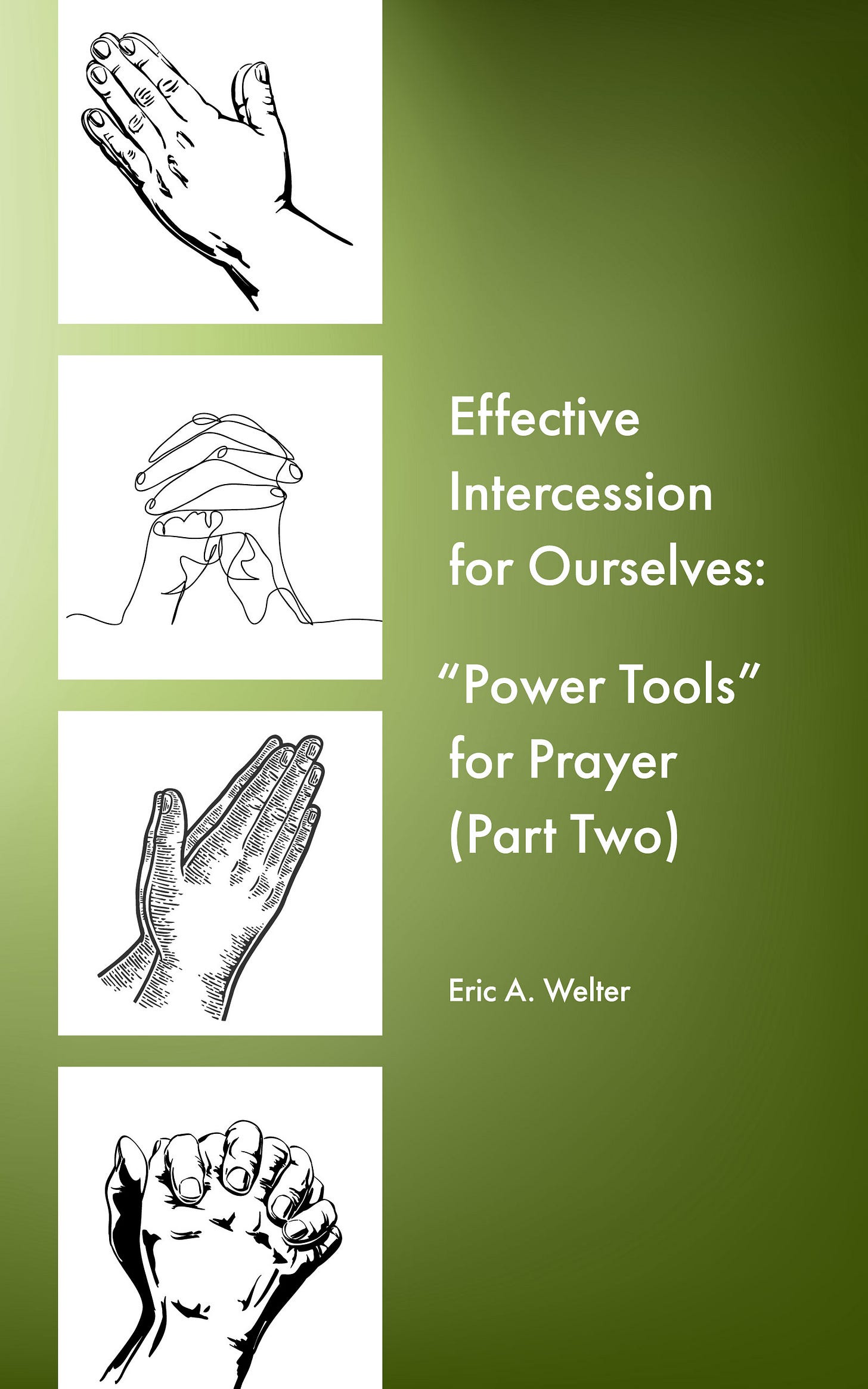Spiritual Hook & Loop Fasteners
The sin that clings to us.
I was recently walking the dogs after work in the evening. The weather was beautiful for this time of year. I was enjoying the walk. It had been a strenuous couple of weeks for me—two spiritual talks (one to a church full of people), a business trip on a case to Newark (always tiring, especially with a late flight home), heavy lifting at the gym, and a couple days of being sick in the middle of it all.
We returned from a large field where the dogs could run freely and entered the path into the woods behind the neighborhood. I noticed that the dogs had again picked up briars, burrs and nettles during their romp through the high grass in the field. It was going to take a hair brush and scissors to get them out of dog fur!
As we continued down the path, my mind turned to Abound in Hope. With all that had been going on, it had been awhile since I had written anything. I needed inspiration. I prayed, “What should I write about?”
The first thought I had was “spiritual [hook and loop fasteners]. No, the Holy Spirit did not say “hook and loop fasteners.” What came to mind was actually the word starting with the letter “V.” I had a different title in mind for this post until I discovered that it would be a trademark violation to refer to the product by its brand name. If you click through to the link, I think you will get the idea. It is hard to get the lawyer out of me.
All of us have experience with these fasteners. They are incredibly useful to quickly open and close something, like tennis shoes or a gym bag. The fastener was invented by Swiss engineer George de Mestral in the 1940s after he noticed burrs from a burdock plant clinging to his clothing and his dog's fur during a walk. Inspired by the tiny hooks on the burrs, he spent years developing a synthetic version that could replicate this fastening mechanism, leading to the patented version in 1955 that we know and love today for its usefulness.
Anyone who has taken a walk in the woods or a grassy field have experience with the natural version of these fasteners. This is what we experience with dogs after they run loose in the fields. Their fur is filled with briars, burrs and nettles. It is not easy to remove them from the fur, as the tiny hooks in the briars attach themselves strongly to the fur. The dogs absolutely do not appreciate the process of brushing these out afterwards! There may even be some howling when we pull a briar out.
Is there something similar in the spiritual life?
Have you ever noticed that when you commit a sin that you had repented of, and thought you had conquered, that it is much more difficult to fight off the temptation to commit the same sin immediately following it? There is a sense that this sin has now “stuck” to us again. Overcoming it is not simply a matter of saying you are sorry to God. Getting loose from it requires some effort in prayer. A good sacramental confession is helpful to release us from clingy sins and gives us renewed spiritual strength to resist the next attack of temptation.
Sometimes we find outselves battling this same sin for years. Confession seems repetitive—here we go again with the same thing to confess week after week. By the grace and goodness of God, we experience relief when we realize that this sticky sin and repetitive temptation that has tormented us for years is gone. We praise God and give thanks for this healing and deliverance!
We encounter a similar effect in our daily life in the world. Worldly music gets stuck in our head. Bad images we see stick in our memory. Even if these things are not necessarily “evil,” we have to exert some effort at prayer and spiritual practices to clean things like this out of our spirit. I previously wrote about Spiritual Pollution and Spiritual Barnacles, which are different aspects of these problems.
Do our active sins attach a “spiritual loop fastener” onto us? The Scriptures do speak of the stain of sin.1 We find additional Scriptural support for this concept in the Letter to the Hebrews. One translation reads: [S]ince we are surrounded by so great a cloud of witnesses, let us also lay aside every weight, and sin which clings so closely, and let us run with perseverance the race that is set before us . . . .2 Another translation reads: [S]ince we are surrounded by so great a cloud of witnesses, let us rid ourselves of every burden and sin that clings to us and persevere in running the race that lies before us . . . .”3
Once the “spiritual loop fastener” is there, does it become a place where the enemy can more easily attach himself to our spirit? Does this enable the enemy to have a stronghold from which to more easily attack us with temptations? Does this explain the experience of the temptations after the fall into sin becoming more and more difficult to resist? Is this why spiritual effort is required to remove the fastener that is stuck to us?
Perhaps this is what Jesus was referencing when He said, “the prince of this world cometh, and in me he hath not any thing.”4 Can we say that the enemy truly has nothing in us?
Does this mean that there is such a thing as a spiritual hook and loop fastener? We do not know for sure. Our experience tells us, however, that what we see in nature is often a reflection of a spiritual reality.
What does this mean from a practical standpoint?
First, we must never stop repenting from sin and resisting temptation. Our Lord Jesus is loving and merciful. He stands ready to forgive the repentant sinner. Tell the Lord you are sorry, take courage, and manfully get up again to renew the battle. Do not give the enemy another opportunity to lay “spiritual hook and loop fasteners” in your spirit.
Second, the same concept applies to the things of God. Take positive pro-active steps to lay down good “spiritual hook and loop fasteners” in your spirit. “Love the Lord your God with all your heart and with all your soul and with all your mind and with all your strength.”5 Study and pray on the Scriptures. Set aside time every day for private prayer and meditation. Listen to good music. Read good spiritual books. Take advantage of confession being readily available and go on a regular basis. Receive Holy Communion worthily. Practice virtue.6 Perform acts of mercy.7 “Love your neighbor as yourself.”8
I encourage you to pick something from this list where you are weak and make a resolution to work on it today.
Have a great day. God loves you!
On the lighter side, here are some corporate videos about that trademark issue I referenced at the top of the post.
Eric A. Welter is an employment lawyer and trial attorney with a long-time devotion to intercessory prayer. He is a Catholic Christian who has been involved with intercessory and healing prayer ministry for over twenty years. The Abound in Hope Ministry website is https://www.aboundinhope.org/ministry.
Eric’s books on prayer are available in paperback or e-book format on amazon.com.
Effective Intercession for Our Loved Ones: Power Tools for Prayer.
(Available on amazon.com in paperback or Kindle.)
Effective Intercession for Ourselves: “Power Tools” for Prayer (Part Two). (Available on amazon.com in paperback or Kindle.)
E.g. Joshua 22:17; Isaiah 4:4; 1 Cor. 6:11. All Scripture references are the Revised Standard Version, Catholic Edition unless otherwise indicated.
John 14:30 (Duoay-Rheims).
“Human virtues are firm attitudes, stable dispositions, habitual perfections of intellect and will that govern our actions, order our passions, and guide our conduct according to reason and faith.” (CCC 1804) The four cardinal virtues are prudence, justice, fortitude, and temperance. The theological virtues are faith, hope and charity. Although I have not listened to it, Fr. Ripperger gives an in-depth theological talk on the virtues here.
The traditional enumeration of the corporal works of mercy is as follows: to feed the hungry; to give drink to the thirsty; to clothe the naked; to harbour the harbourless; to visit the sick; to ransom the captive; to bury the dead. The spiritual works of mercy are: to instruct the ignorant; to counsel the doubtful; to admonish sinners; to bear wrongs patiently; to forgive offenses willingly; to comfort the afflicted; to pray for the living and the dead.





